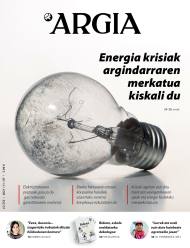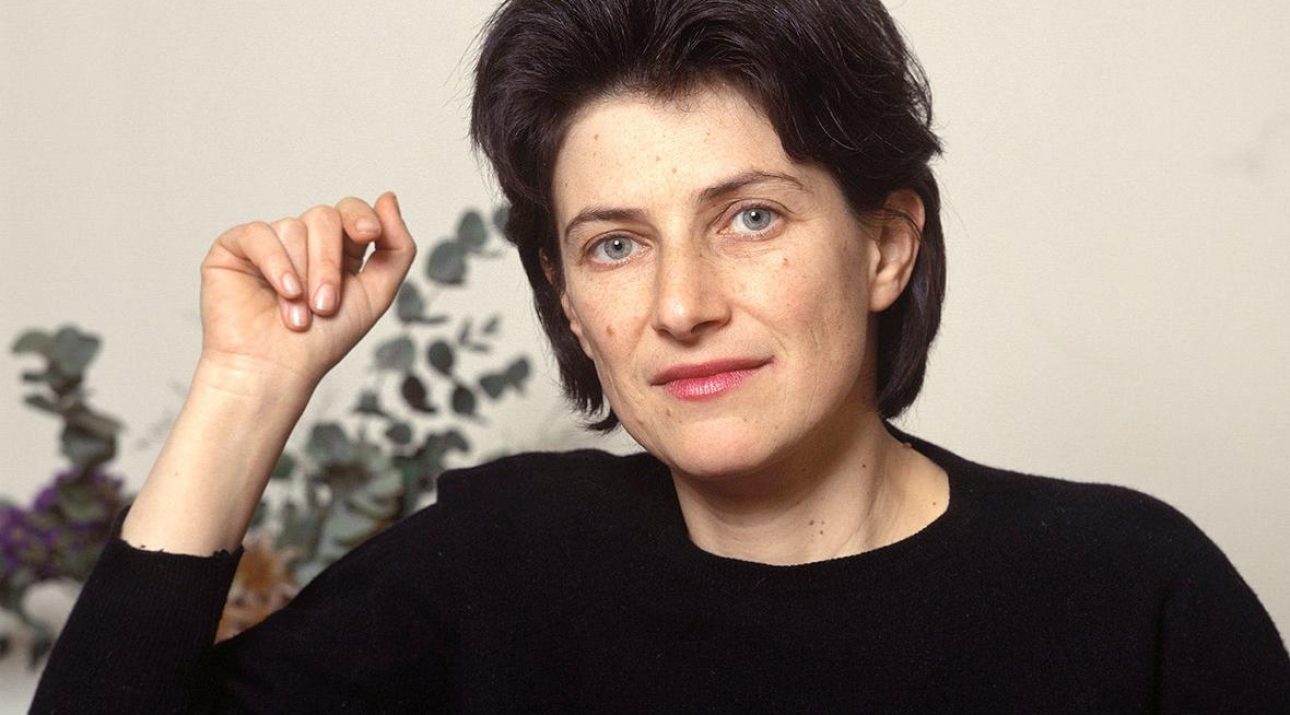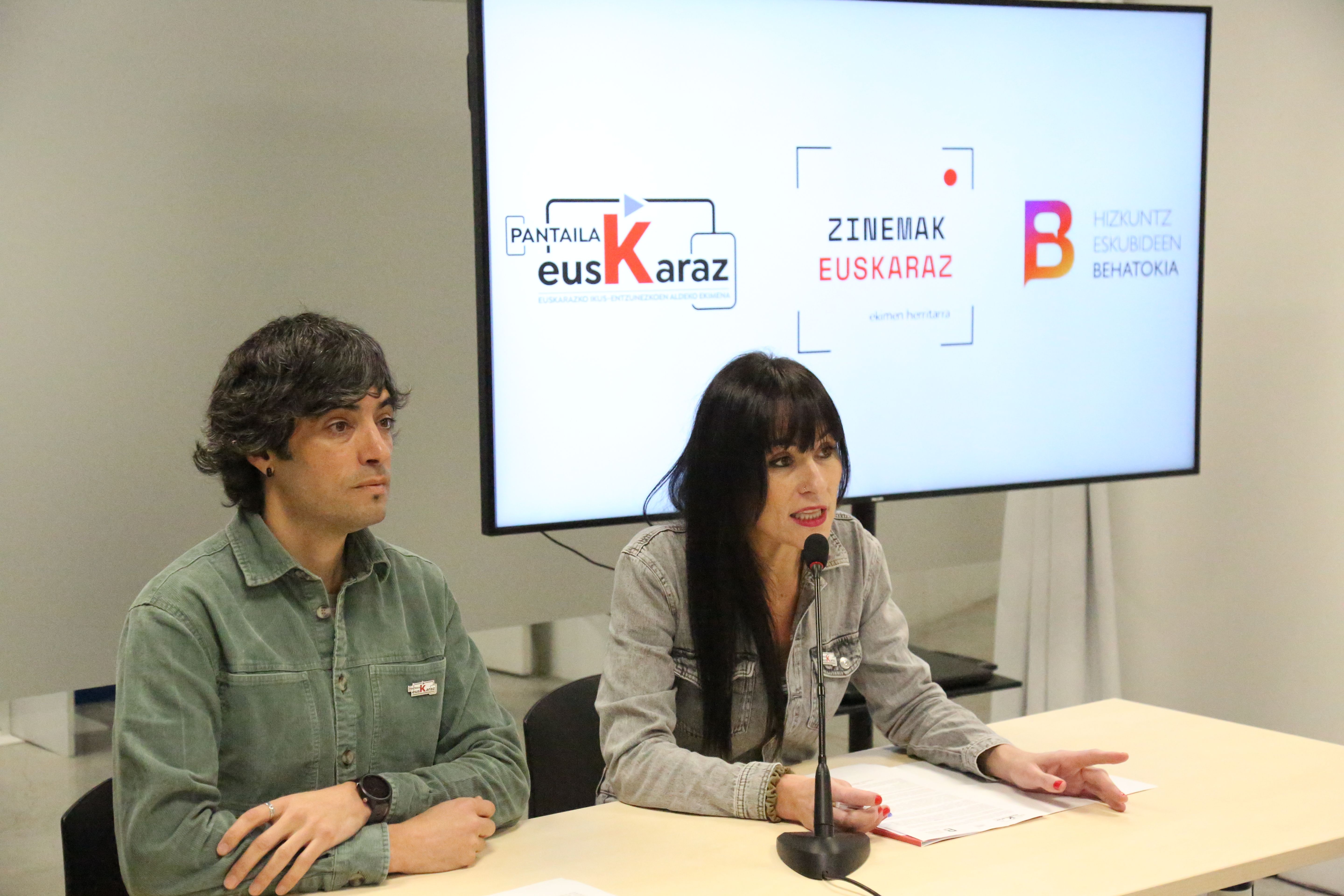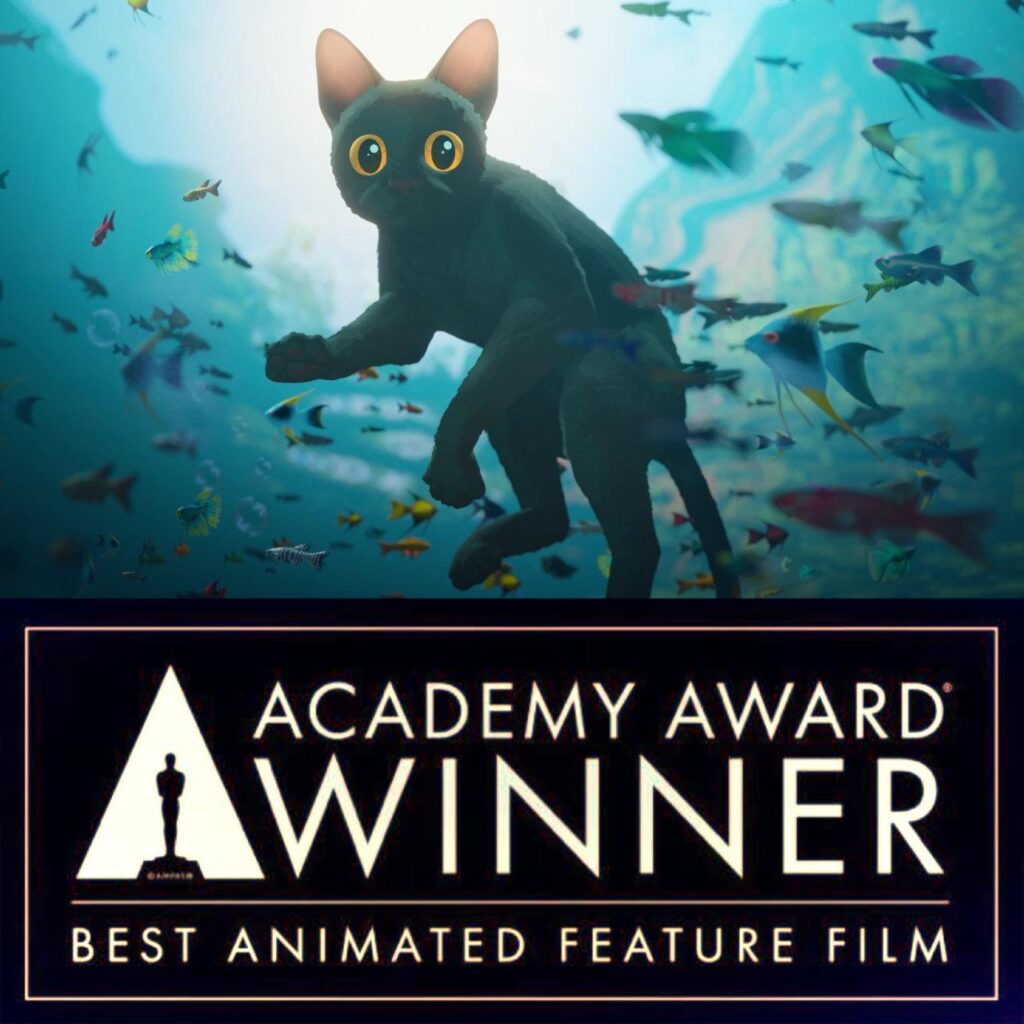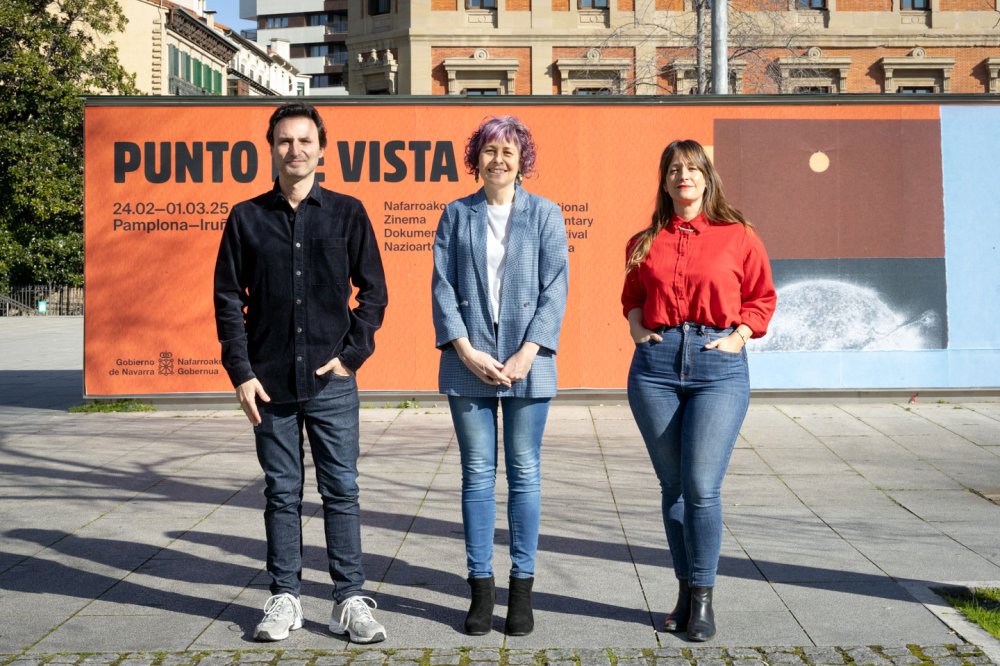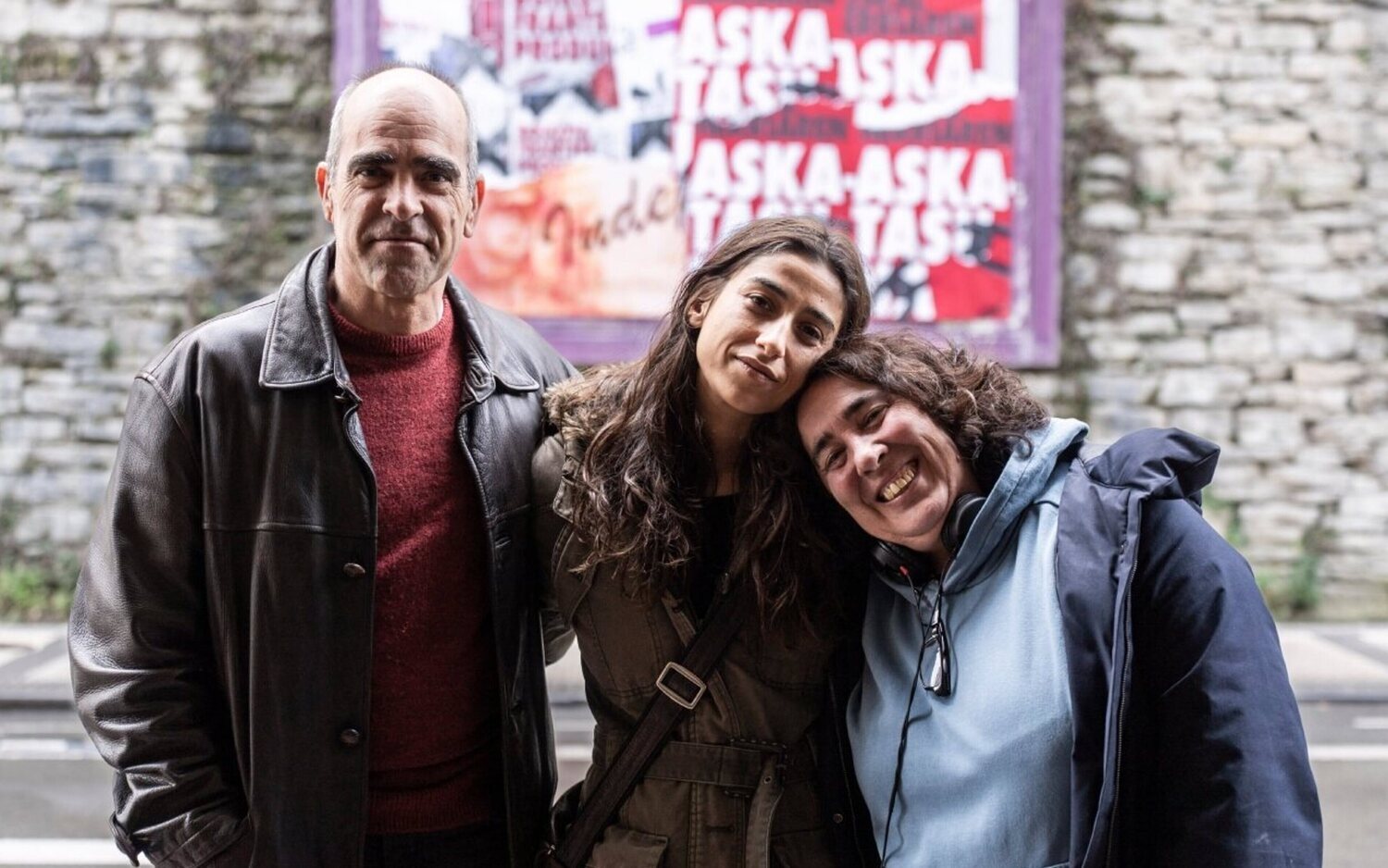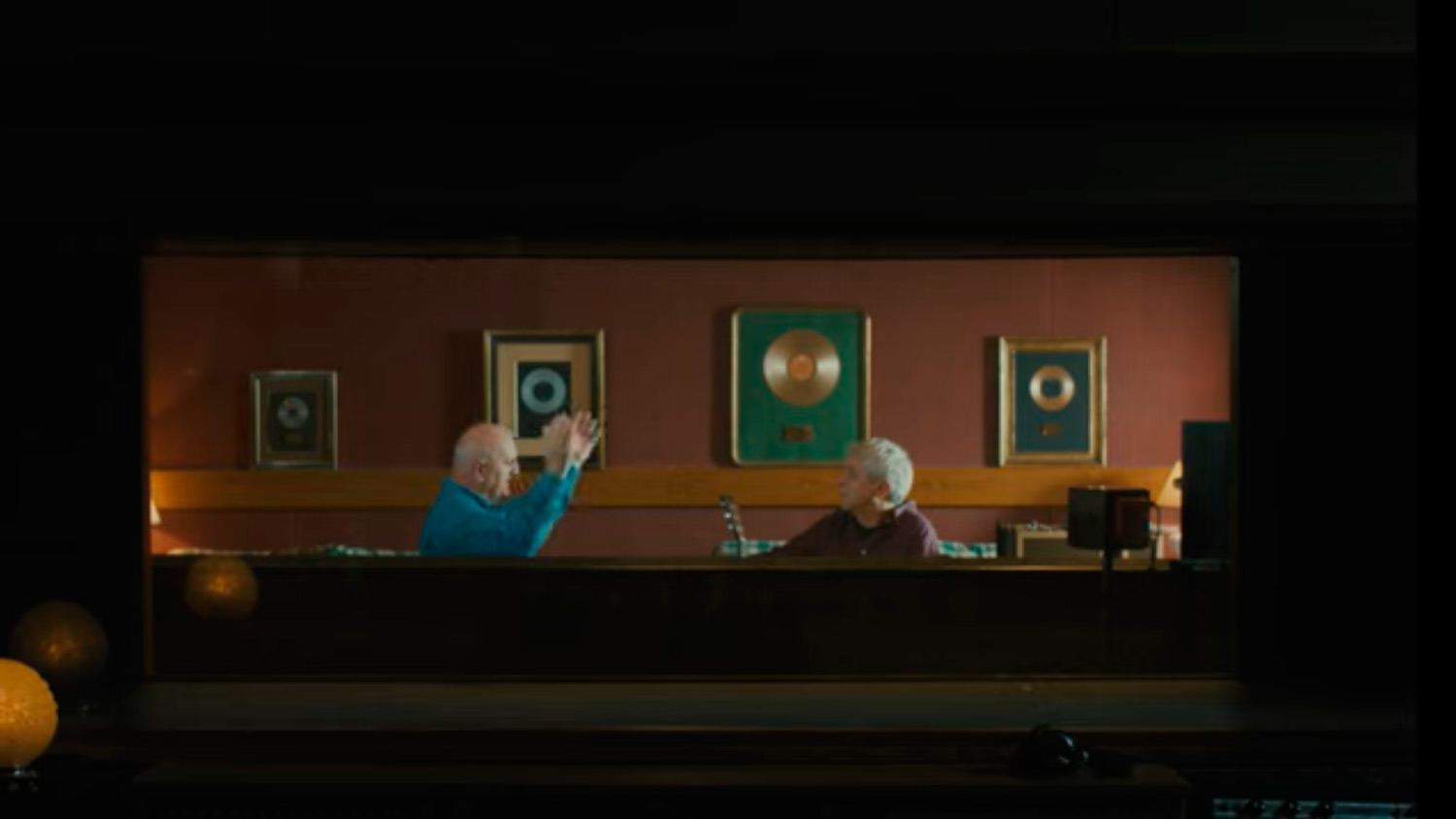Festival organized collectively at global level
- Queer Cinema for Palestine (QCP) will open its virtual and physical doors in November. The ten-day film festival has been curated collectively and aims to show queer realities globally and to show solidarity with the Palestinians. Between 11 and 20 November, eleven events will start on the five continents. Bilbao will host on 19 November the film screening and post-film debate, organised by the Lesbian Network in Karmela.
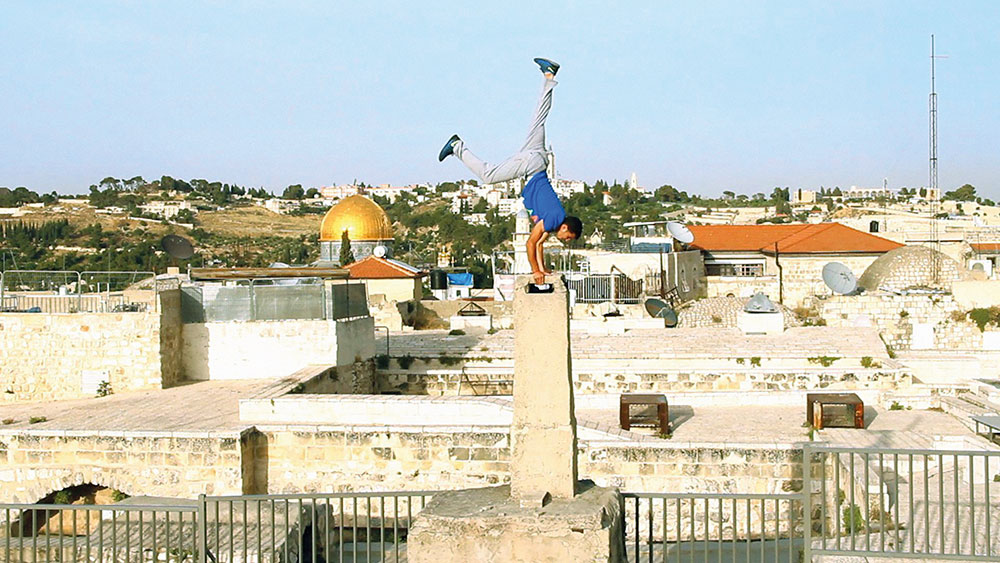
QCP consists of filmmakers and film artists as a support space for the LGTBQ+ Palestinian collective. During the ten days of the festival, sessions will be offered both online and face-to-face in South Korea, South Africa, Tunisia, Lebanon, Kosovo, Italy, Ireland, France, Canada, Bulgaria, Brazil and Euskal Herria. The festival will feature films and documentaries, including Palestinians and those from South-West and North Africa. It also includes a wide range of activities such as master classes with filmmakers, round tables, drag queen performances, acts of solidarity with indigenous queer, etc.
The initiative was launched at the TLVFest festival, sponsored by the Israeli government. The LGTB film festival, which aims to be a facial bleaching of the apartheid regime, has removed from its films the works of over 50 filmmakers and the Palestinian queer community has called for a boycott of the festival. In addition, about 200 filmmakers have positioned themselves in response to the call of the Palestinians, and the work will not be projected in TLVFest. A special program of Brazilian short films pays tribute, for example, to the eight Brazilian filmmakers who retired from TLVFest in 2020.
QCP wanted to conceive the Festival as an instrument of social transformation through art. It will present a Jewish film programme Queer and a round table on the suppression of solidarity with the Palestinians. In this regard, the programme “Apartheid before and now” will bring together films from South Africa, Palestine and internationally, as well as lectures on the use of cinema and the new media, with the aim of combating apartheid and boycott as an activist tactic. Militant Ghadir al Shafie, one of the founders of the Palestinian Feminist Center for Gender and Sexual Freedom Aswat, said: “As Queer Palestinians, we invite you to join the Queer Cinema for Palestine festival. It is a feminist, antiracist and anticolonal festival that shouts ‘yes’ to queer cinema and ‘no’ to Israeli apartheid.”
Also in the Basque Country
The QCP film initiative is organised by a global coalition that brings together different actors, from film festivals to social movement groups. Among them is the Red Lesbianista del País Vasco, a group that, in collaboration with QCP, has organized the screening of 19 November in Carmen de Bilbao. Under the title “Free Palestine: Decolonialism and Bollere Alliances” (Free Palestine: Decolonality and Bollere Alliances), Beyond the Frontlines: The film Tales of Resistance and Resilience from Palestine (Beyond the Front: stories of resistance and resilience from Palestine) will be screened. Film made in 2017, directed and produced by filmmaker Alexandra Dols. With the participation of Palestinian people such as the psychiatrist and writer Samah Jabr, she analyses the consequences of the Israeli occupation on the mental health of the Palestinian people, the colonial trauma and the issues of alienation and disalienation. Sunbird award for the best documentary film at the Palestine Cinema Days festival.
The film is based on a series of columns written by the Palestinian psychiatrist and writer Samah Jabr, which are read by the writer and form the structure of the film. In addition, the film includes interviews, archival images and filming. From Jo’s point of view, “the occupation of Israel is not only a political issue, but also a mental health problem”, the film is an analysis of how Palestinian women and men experience the external and internal consequences of the occupation. According to Dols, “daily colonization not only involves the occupation of land, houses, sky or water. It not only seeks to impose its superiority through weapons, but also shapes its desires beyond the fronts.” The interviewees represent a wide variety of identities, religions, sexual orientations, political cultures, social environments and geographic origins. This plurality has been presented as a political position by the director Alexandra Dols. According to Jo, “the film does not turn its back on people who consider themselves controversial and, therefore, should not be avoided and taken into account; the interviewees are ideologically different, but agree in the struggle for liberation”.
Alexandra Dols learned the writings of Samah Jo after completing the first documentary feature film Moudjahidate, which analyzed the activism for the independence of Algerian women from the National Liberation Front. Jo’s perspective on the Israeli-Palestinian conflict is inspired by the analysis of the anti-colonial psychiatrist Frantz Fanon, who says that national liberation cannot take place without decomposition. It is very interesting to observe how, within a project such as the QCP, the works guided by decolonal theories acquire centrality.
The interested in the projection that will take place in Euskal Herria from the hand of the Lesbian Network will be able to get more information on the social networks of the group in the coming days.
No other land dokumentalaren zuzendari Hamdan Ballal kolono sionistek jipoitu zuten astelehenean bere herrian, beste hainbat palestinarrekin batera, eta Israelgo militarrek eraman zuten atxilo ondoren. Astarte goizean askatu dute.
Donostiako Tabakaleran, beste urte batez, hitza eta irudia elkar nahasi eta lotu dituzte Zinea eta literatura jardunaldietan. Aurten, Chantal Akerman zinegile belgikarraren obra izan dute aztergai; haren film bana hautatu eta aztertu dute Itxaro Bordak, Karmele Jaiok eta Danele... [+]
35 film aurkeztu dira lehiaketara eta zortzi aukeratu dituzte ikusgai egoteko Euskal Herriko 51 udalerritan. Euskarazko lanak egiten dituzten sortzaileak eta haiek ekoitzitako film laburrak ezagutaraztea da helburua. Taupa mugimenduak antolatzen du ekimena.
Pantailak Euskarazek eta Hizkuntz Eskubideen Behatokiak aurkeztu dituzte datu "kezkagarriak". Euskaraz eskaini diren estreinaldi kopurua ez dela %1,6ra iritsi ondorioztatu dute. Erakunde publikoei eskatu diete "herritar guztien hizkuntza eskubideak" zinemetan ere... [+]
Geroz eta ekoizpen gehiagok baliatzen dituzte teknologia berriak, izan plano orokor eta jendetsuak figurante bidez egitea aurrezteko, izan efektu bereziak are azkarrago egiteko. Azken urtean, dena den, Euskal Herriko zine-aretoak gehien bete dituztenetako bi pelikulek adimen... [+]
Otsailaren 24tik eta martxoaren 1era bitartean, astebetez 60 lan proiektatuko dituzte Punto de Vista zinema dokumentalaren jaialdian. Hamar film luze eta zazpi labur lehiatuko dira Sail Ofizialean; tartean mundu mailako lau estreinaldi eta Maddi Barber eta Marina Lameiro... [+]
A conference for architects has just been held in Madrid to discuss the crisis of the professional architect. They have distinguished the traditional and contemporary way of being an architect. What is traditional? From the epic architect who appears in The Brutalist, where... [+]
Itoiz, udako sesioak filma estreinatu dute zinema aretoetan. Juan Carlos Perez taldekidearen hitz eta doinuak biltzen ditu Larraitz Zuazo, Zuri Goikoetxea eta Ainhoa Andrakaren filmak. Haiekin mintzatu gara Metropoli Foralean.









